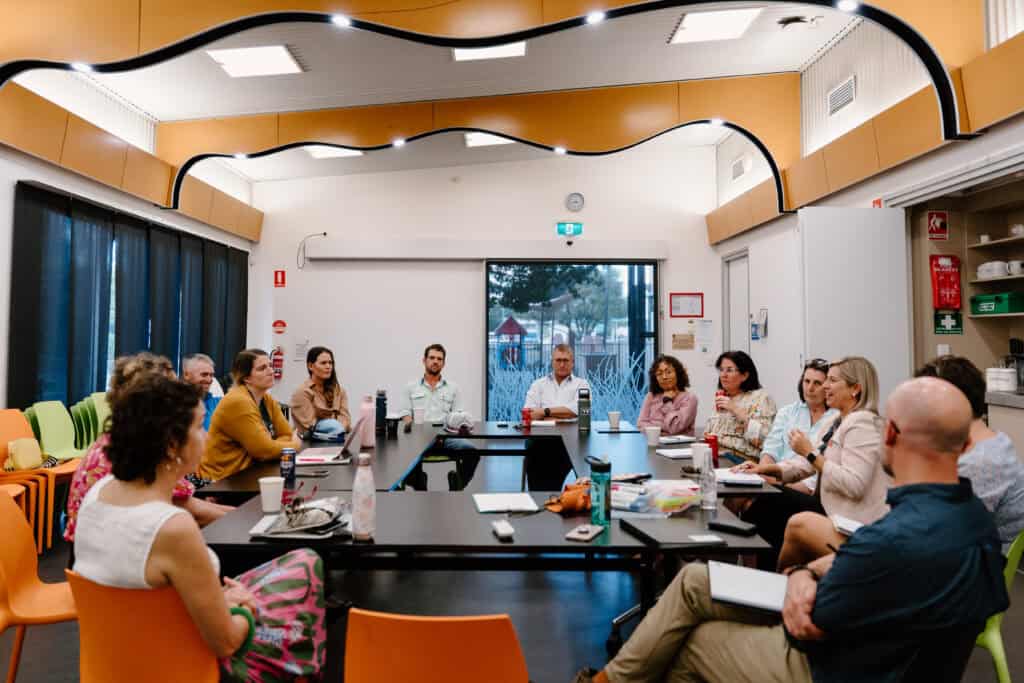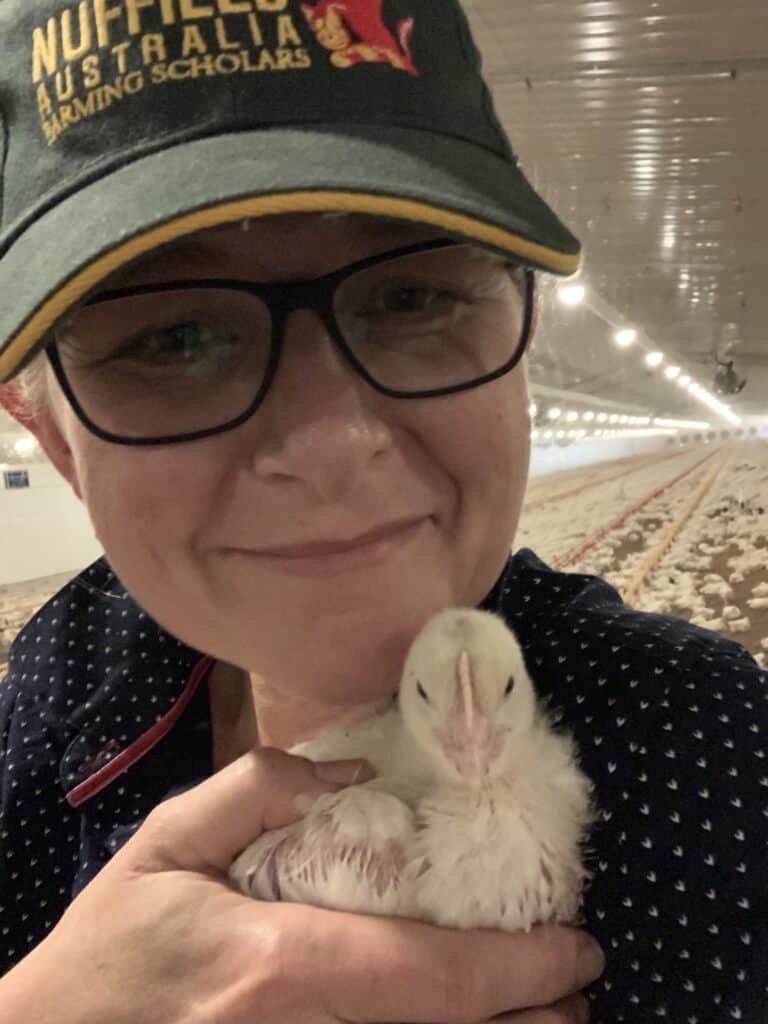Author: Claire Delahunty
Trevor Meldrum has mentored three young leaders through the Australian Rural Leadership Foundation (ARLF) National Mentoring Program. From his home in Cape York, where he runs award-winning business Cape York Weeds and Feral Animals Inc. Trevor, a Bama man, has connected with mentees across Australia working hard to have a positive impact in their own communities.
Whether it’s having tough conversations about prejudice or simply building confidence, Trevor values the mentoring process as a way of giving back, as well as sharing where he comes from.
“I got involved in the mentoring program as a way to contribute and give back. I had good mentors and bosses when I was a young fella. I also put my hand up as an elder, because we need to get our voices out.”
Trevor grew up in Cooktown, unaware for a long time that his Indigenous father’s side of the family had been forcibly removed from the more northern Princess Charlotte Bay area and resettled in Cooktown Hopevale, and various other places throughout Queensland. He knew little about his Bama heritage until his dad passed away and extended family and elders began to teach him about his land and culture. Growing up it was going to be “boarding school or jail”, and Trevor left home for school at age 13. By 17 he was working as a ringer on cattle stations and he discovered how influential the example of older, more experienced hands could be.
“It was a little bit hard having a foot in both camps in terms of black and white, but I had some good head stockmen, and they were fair. I had a series of black family members help keep me on the straight and narrow too.” Trevor recalls.
In 1991, Trevor seized the opportunity to go to Hawaii the US and Canada, as part of an international agricultural exchange and returned home even more passionate about working with cattle and horses. When his mum became ill however, Trevor cared for her in Cooktown, and took a job with the local council working on bio-security measures to tackle the invasive flora and fauna species impacting habitat and primary production. From there, he, along with community members founded Cape York Weeds and Feral Animals Inc. which in 2020 won the Queensland Landcare Indigenous Land Management Award and received special recognition as a finalist in the 2021 National Landcare Awards.
Mentoring is an adaptive process
Since connecting with the Australian Rural Leadership Foundation’s National Mentoring Program, Trevor has been matched with three mentees. Each relationship, Trevor reflects, has been vastly different, and he has worked flexibly with each person according to their needs. He is currently working with a Sydney-based mentee involved in agribusiness.
“He’s keen to learn about the bush, and I think appreciates what I bring. I just tell him to keep it real.” Trevor laughs.
With his first mentee, Gay Baker, the pair grew a strong connection. Gay is an Indigenous farmer based in north-east Victoria specialising in edible native crops.
“Gay was brilliant. She was doing really pioneering work with native foods and coming up against barriers and was being talked down to. She wasn’t always given the same respect as a mainstream producer.” Trevor says.
When Gay was “coming up against a brick wall” in regards to a small block of land where she was hoping to establish native grass cropping, Trevor urged her to have confidence in her culture.
“It’s different Country to mine, but the principle is very similar. She was facing a lot of roadblocks and criticism, and we talked about being clear that there are valid ways of farming other than European ways. She explained that to people, and she’s now being recognised for her hard work.”
With each mentee, Trevor brings a few core principles to his approach.
“The biggest thing you need to be able to do as a mentor is to be able to listen. The other thing I talk about is when we’re wrong, we need to admit we’re wrong. Everyone makes mistakes, what’s important is that we own them.” He says.
A war on waste
Trevor’s passion is protecting the unique and valuable Cape York environment, which is often conceptualised as ‘pristine’, but in reality is threatened by an array of invasive species. To do this valuable work, funding certainty and stable ongoing investment is essential. It is this which drives Trevor’s tireless engagement with agricultural organisations and with all levels of government.
“The biggest thing I see – and its hugely problematic – is the waste in how funding is allocated and channelled. By the time money hits the ground locally, there has often been unnecessary waste along the way, and sometimes very little ends up hitting the mark,” Trevor says.
“Especially up here, we need to use funding wisely, and get the next generation involved in caring for Country.”
Never shy of holding those in roles of power and responsibility to account, Trevor advocates whenever he can for resources finding their way into the hands of people who “know what they’re doing, and know the place they’re working in.”
He is inspired by the work he does with Cape York’s fledgling horticultural industries around the adoption of ag tech and wants to help develop market access for local producers. Through partnerships with organisations like AgriFutures Australia, Trevor is seeing the latest AI applications in weed spraying and the use of drones that can recognise diseases in fruit trees, among a wide range of innovation.
But what really drives him is knowledge transfer between his generation and the next.
“Mentoring young people through this program and through the work I do in my community gives me a bit more faith in humans. Not all young fellas are prepared to listen and learn from mistakes of the past … Those I’m working with seem to want to do things the right way, and that restores your hope for the future.”
With many of his own elders no longer alive, Trevor is fuelled by respect for those who have come before him.
“At the end of the day my biggest fear is that I haven’t done enough … this is my Country and my responsibility. If I don’t try to pass on what I can, I’m not doing my job. It’s about perseverance and listening to ancestors.
“After all,” he says, “we answer to them eventually.”
The National Mentoring Program is part of the Helping Regional Communities Prepare for Drought Initiative delivered in partnership with the Foundation for Rural & Regional Renewal under the Australian Government’s Future Drought Fund. More than 300 people between 2021 and 2022 have already participated in a first iteration of the program called the Drought Resilience Leaders Mentoring Program.








